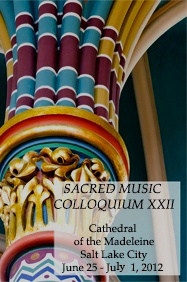Christ, Whose glory fills the skies,
Christ, the true, the only Light,
Sun of Righteousness, arise,
Triumph o’er the shades of night;
Dayspring from on high be near;
Day-star, in my heart appear.
Dark and cheerless is the morn
Unaccompanied by Thee;
Joyless is the day’s return
Till Thy mercy’s beams I see;
Till they inward light impart,
Glad my eyes, and warm my heart.
Visit then this soul of mine,
Pierce the gloom of sin and grief;
Fill me, Radiancy divine,
Scatter all my unbelief;
More and more Thyself display,
Shining to the perfect day.
There are two kinds of light at work in this most excellent hymn by Charles Wesley. There is a diffuse, general light, and a piercing, personal light that has yet to enter into the soul of the singer.
The light that is already present is given with the dawn. In the Christological sense of the hymn, this light is given in creation, and in the Incarnation. The dawn itself shows that there is already present “in the skies” the undeniable light of Christ, the logos, “through whom all things were made.”
Then comes the dawn of the Incarnation, the “Dayspring from on high.” This is the dawn that happens upon the world when the Word becomes flesh. But it is not yet experienced as "pro me." That will come with the dense, bright light, the "Daystar in my heart."
So the singer asks for a more intense light, “Thy mercy’s beams.” This focused and dense light has a personal effect that the diffuse light does not fulfill in itself. It is not a general gift but one that, the singer prays, can “visit” and “pierce” and manifest the presence of Christ within the human person.
url=http://www.hymnographyunbound.blogspot.com/url
Subscribe to:
Post Comments (Atom)

No comments:
Post a Comment